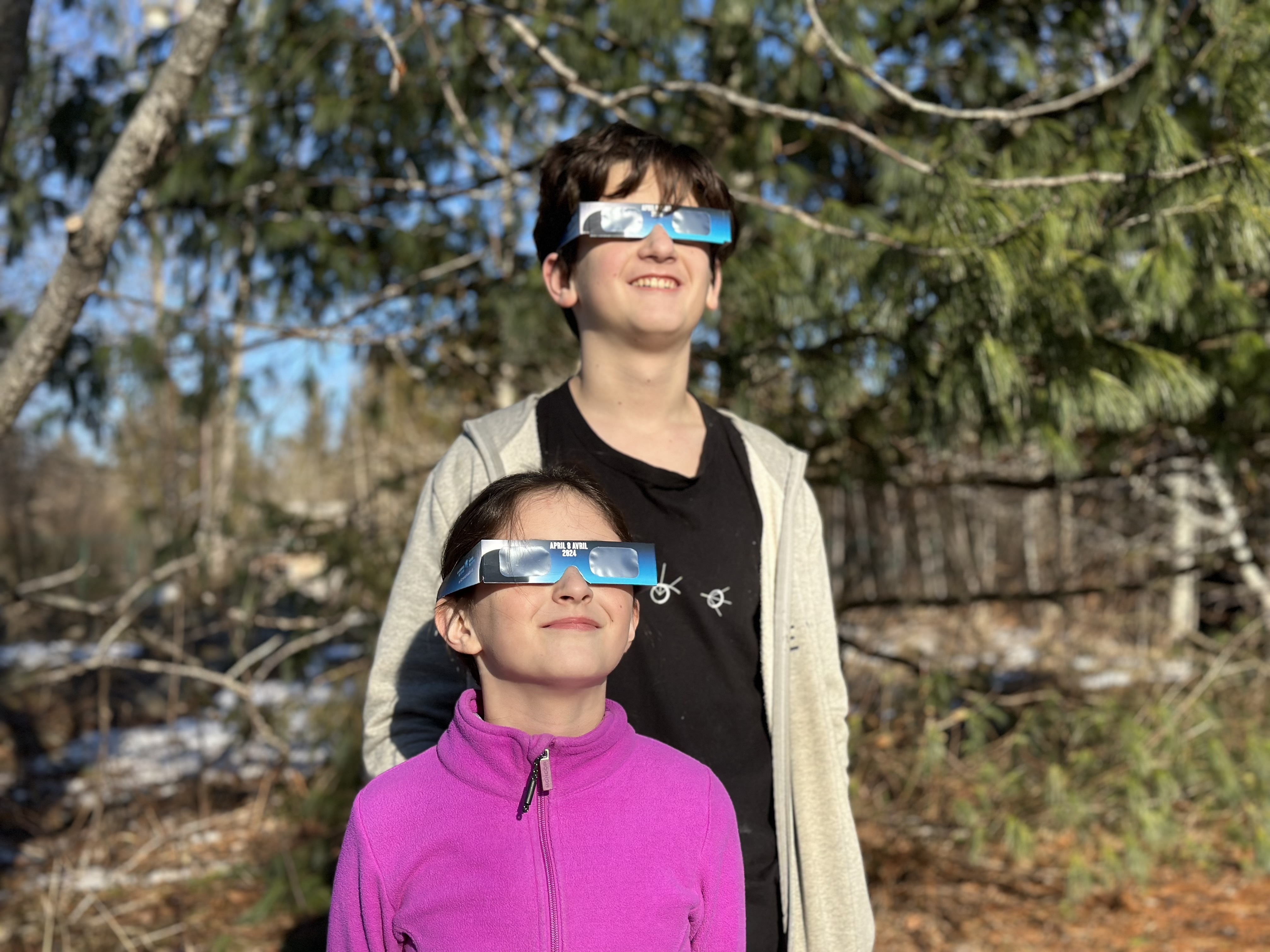
As educators, parents and astronomers, we want to make sure that no kids are left inside during the total solar eclipse on Monday, April 8, 2024. This is a once-in-a-lifetime opportunity to experience one of the most incredible natural phenomena alongside millions of Canadians.
Some school boards have decided to schedule PA days during the eclipse, and others are closing early that day. A few have even instructed teachers not to distribute eclipse glasses to students, which were provided for free by Discover the Universe specifically for children and teens across Ontario and Quebec.
“I’m a little disappointed that some school boards aren’t using this incredible astronomical event as an educational opportunity, and are instead approaching the situation from a place of fear. The eclipse is going to happen whether we pay attention to it or not, and the best way to make sure that students are safe is to educate them on how to view the eclipse and to provide them with the proper equipment to safely view the sun,” says Ilana MacDonald, head of Ontario’s Eclipse Task Force.
Discover the Universe, with support from the Dunlap Institute for Astronomy and Astrophysics, has already distributed over 245,000 eclipse glasses to teachers to share with their students, and have nearly 40,000 more to go. We are working tirelessly to get every single pair into the hands of a student.
If you have eclipse glasses available for your school but class will not be in session on April 8, we encourage you to distribute them to students to use at home with their family and friends.
It is completely safe for people of all ages to observe the eclipse with simple tools like eclipse glasses and the right techniques. The Sun is no more or less dangerous to look at during a solar eclipse, and just like any other day, should never be looked at with the naked eye. By continuing to teach about the eclipse and sharing the tools to enjoy it, we can significantly minimize any risk.
Eclipse glasses are very easy to use – especially if we show our students how to do so ahead of time. Eclipse glasses should be ISO 123212-2:2015 certified and obtained from a reputable distributor.
“I urge you to embrace this amazing event that we have happening above our heads on April 8th. I hope everyone gets to enjoy it – especially the younger audience who will remember this for the rest of their lives,” says Julie Bolduc-Duval, Director of Discover the Universe. “Some schools have decided to close but as teachers, as educators, you can still embrace it. You can still teach about the eclipse and encourage students to observe it with their parents.”
Discover the Universe has also designed free workshops, resources, and activities to help educators take advantage of this valuable teaching and learning opportunity with their students. Teachers can show their students how to safely observe the Sun with eclipse glasses or indirect viewing methods, create scale models of the eclipse in their classrooms, and even host viewing parties for students, their families, and members of our communities.
Background
Total solar eclipses are one of the most dazzling celestial events humans can experience from Earth. A solar eclipse occurs when the Moon passes in between the Earth and the Sun, causing the Sun to cast a shadow of the Moon onto the Earth.
The path of totality, which covers the places on the ground where the Moon can be seen completely covering the Sun, will pass over parts of Southern Ontario, Quebec, and the Atlantic provinces. People outside of the path of totality will be treated to an incredible partial solar eclipse.
Another total solar eclipse will not be seen again over Eastern Canada until 2079. The next total solar eclipse to occur over Toronto will be in 2144.
Discover the Universe has provided eclipse training to over 1,000 educators across Eastern Canada, with more in-person training sessions throughout March. Additionally, astronomers from the University of Toronto are hosting dozens of eclipse workshops at the Toronto Public Library for members of the public.
More information
Are you planning to teach your students about the upcoming eclipse? Take a look at Discover the Universe’s resources for educators or contact CJ Woodford (charles@discovertheuniverse.ca) for more information.
If you are a member of the media who would like to speak to an expert at the University of Toronto about the eclipse, please contact:
Michael Pereira
media@dunlap.utoronto.ca
Communications and Multimedia Officer
Dunlap Institute for Astronomy and Astrophysics
